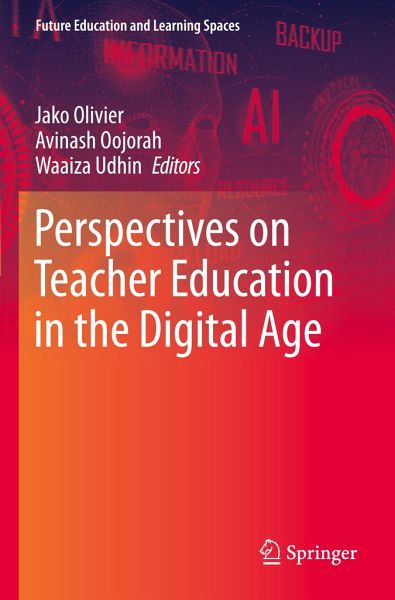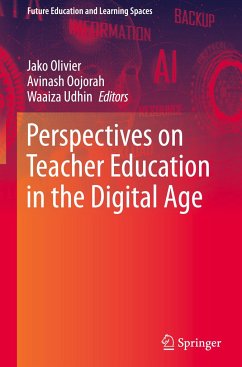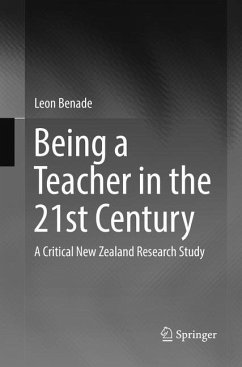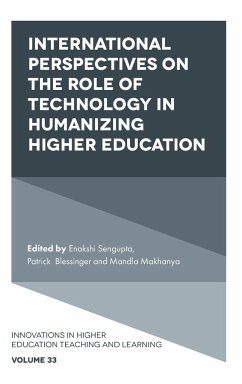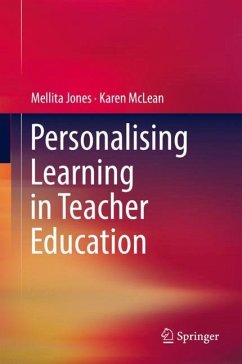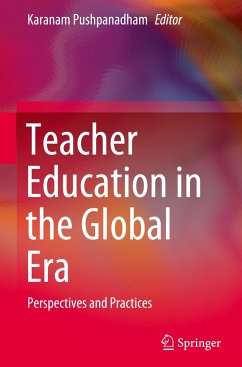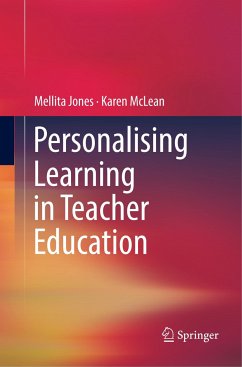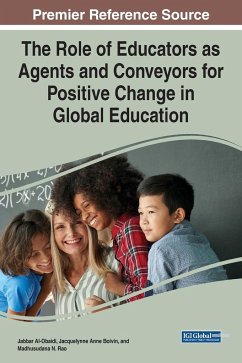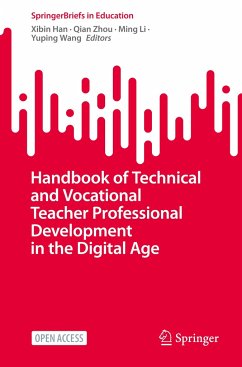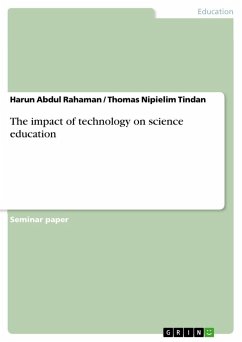Jako Olivier is a professor in Multimodal Learning at the North-West University (NWU), and he holds the UNESCO Chair on Multimodal Learning and Open Educational Resources (OER). He obtained his Ph.D. in 2011 in which he researched the accommodation and promotion of multilingualism in schools through blended learning. Before he joined the NWU as the lecturer in 2010, he was involved in teaching information technology and languages in schools in the UK and in South Africa. From 2010 to 2015, he was a lecturer in the then Faculty of Arts of the NWU after being appointed as an associate professor in the Faculty of Education in 2015. During 2012, he was a guest lecturer at the University of Antwerp, Belgium. In 2018, he was promoted to the full professor at the NWU. Jako is an NRF-rated researcher, and in 2018, he received the Emerging Researcher Medal from the Education Association of South Africa (EASA). He is a member of the editorial boards of the Contemporary Language Teaching journal and Reading & Writing and acts as the section editor for the journal Literator. He is also on the international academic board of the Open Spaces University, Morocco. As an activist for open education, he is an active member of the Creative Commons Chapter of South Africa and leads the Network of OER and Multimodal Self-Directed Learning in Southern Africa (NOMSA). He also participated in the consultations for the UNESCO OER Dynamic Coalition Report in 2020. Furthermore, he has been involved in publishing multilingual online learning resources since 1996. In addition to recently completing the editing of a book on self-directed multimodal learning, he has published a number of articles and chapters at the national and international levels in accredited publications. He recently co-edited a Springer book on self-directed learning and open education in Africa . He also acts as a supervisor for postgraduate students at the NWU. His research, located within the NWU's Research Unit for Self-directed Learning, is focused on self-directed learning, multimodal learning, open educational resources, multi-literacies, micro-learning, individualized and contextualized blended learning, e-learning in language classrooms, and online multilingualism. Avinash is Senior Lecturer at the Mauritius Institute of Education. He has been the head of Centre for Open and Distance Learning at the Mauritius Institute of Education from 2019 to 2021. He holds a doctoral degree in digitization of curriculum from University of KwaZulu-Natal and has been heading major educational technologies projects at national level, namely Sankoré and Early Digital Learning Programme. He spoke at the UNESCO World OER Congress in Paris (2012) on Sankoré. He has also brought forward innovative initiatives such as Codecraft, the national coding competition for Grade 9 students in Mauritius. Through this competition, his team has introduced concepts such as digital storytelling and robotics for education. He is also spearheading innovative EdTech projects funded by the Mauritius Research and Innovation Council. He has published and co-published papers in accredited journals in the field of technology and pedagogy. His keen interest is in finding innovative ways to enhance teaching and learning at various levels. Avinash also has a long working experience in the education sector. Avinash has some recent research that he has co-authored: ¿ Designing remote education in a VUCA world (Pultoo and Oojorah in International Journal of Computers and Technology, 20, 45-52. ¿ Climate monitoring using an Arduino-based mobile weather station and open source codes. Journal of Education and Social Sciences, 16 (1), 105-114 (Ujoodha, M., Pultoo, A., & Oojorah, A. (2020)) Dr. Waaiza Udhin is a senior lecturer at the Centre for Open and Distance learning Mauritius Institute of Education. She holds a Ph.D. in learning with technology from the University of Kwazulu-Natal, South Africa. She also holds a Masters in Computer Mediated Communication and Pedagogies and from the University of Mauritius. She has been working as a primary educator for 7 years and as an academic at the Mauritius Institute of Education, a Higher Education Institution dedicated to Teacher Education, for more than 10 years. Waaiza has been lecturing modules in Curriculum Studies, Assessment & Evaluation and she has also serviced courses in Communication. . She is a member of the Higher Studies Cell of the institution that has mandate to research on the courses offered at the Mauritius Institute of Education. Since 2019, Waaiza is coordinating an innovative national project on using Tablet Technologies in Mauritian Primary Schools. Waaiza presented in many international conferences and won the award for best presenter in an international conference in 2017. She has published and co-published in accredited journals and conference proceedings. Her publications were mainly in the field of technology, education and curriculum development. Her research interests are in the field of Innovation and Education, Online Learning, Communication, Assessment & Evaluation, Curriculum Development. In 2020, Waaiza chaired two international webinars on 'Addressing the challenges caused by mass closure of schools during the Covid-19 pandemic- Lessons from international contexts' and 'Global perspectives of teachers' professional practice'. Furthermore, both Avinash and Waaiza have contributed to the setting-up and implementation of remote teaching and learning in Mauritius for primary and secondary education during the lockdown periods due to the COVID 19 pandemic. They have researched and published on it in (Re) Learning to Teach in Contexts of Crises: Sustaining education in a VUCA world: Experiences of higher education (re)designers of school curriculum in Mauritius- ISBN: 978-0-9869936-6-4 Dr Waaiza Udhin, Dr Vicky Avinash Oojorah, Dr Anand Pultoo
